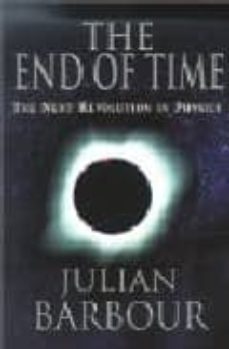The end of the time: the next revolution in physics (edición en inglés)
de Julian Barbour
A brief history of time: from he big bang to black holes (edición en inglés)
- Fecha de lanzamiento: 22/06/2005
- Plaza de edición: NEW YORK
- Año de edición: 1999
- ISBN: 9780195145922
- Encuadernación: Tapa blanda
- Idioma: INGLÉS
- Editorial: OXFORD UNIVERSITY PRESS
- Nº de páginas: 374
In search of the edge of the time: black holes, white holes, worm holes
Richard Feynman once quipped that 'Time is what happens when nothing else does.' But Julian Barbour disagrees: if nothing happened, if nothing changed, then time would stop. For time is nothing but change. It is change that we perceive occurring all around us, not time. Put simply, time does not exist.
In this highly provocative volume, Barbour presents the basic evidence for a timeless universe, and shows why we still experience the world as intensely temporal. It is a book that strikes at the heart of modern physics. It casts doubt on Einstein's greatest contribution, the spacetime continuum, but also points to the solution of one of the great paradoxes of modern science, the chasm between classical and quantum physics. Indeed, Barbour argues that the holy grail of physicists--the unification of Einstein's general relativity with quantum mechanics--may well spell the end of time.
Barbour writes with remarkable clarity as he ranges from the ancient philosophers Heraclitus and Parmenides, through the giants of science Galileo, Newton, and Einstein, to the work of the contemporary physicists John Wheeler, Roger Penrose, and Steven Hawking. Along the way he treats us to enticing glimpses of some of the mysteries of the universe, and presents intriguing ideas about multiple worlds, time travel, immortality, and, above all, the illusion of motion.
The End of Time is a vibrantly written and revolutionary book. It turns our understanding of reality inside-out.
Where does the time go? Independent physicist Barbour presents an unusual alternate to the standard way of viewing the four-dimensional universe (three spatial dimensions and time), beginning with how our perception of time is formed. Time, he says, does not exist apart from events: the motions of the sun and the stars, the mechanical movement of a clock. Rather than truly feeling the passing of time, we merely note changes in our surroundings, described by the author as a series of 'Nows,' like frames of a motion picture. Not only do Nows exist for the events that actually occur, but a large number of Nows represent alternate possibilities, inhabiting a land called Platonia. Which Nows become our perceived reality? The rule of thumb Barbour gives is, 'only the probable is experienced.' In the 'macro' world, the author addresses determinism, Newtonian mecha
The problem of time: quantum mechanics versus general relativity: 2017 (edición en inglés)


